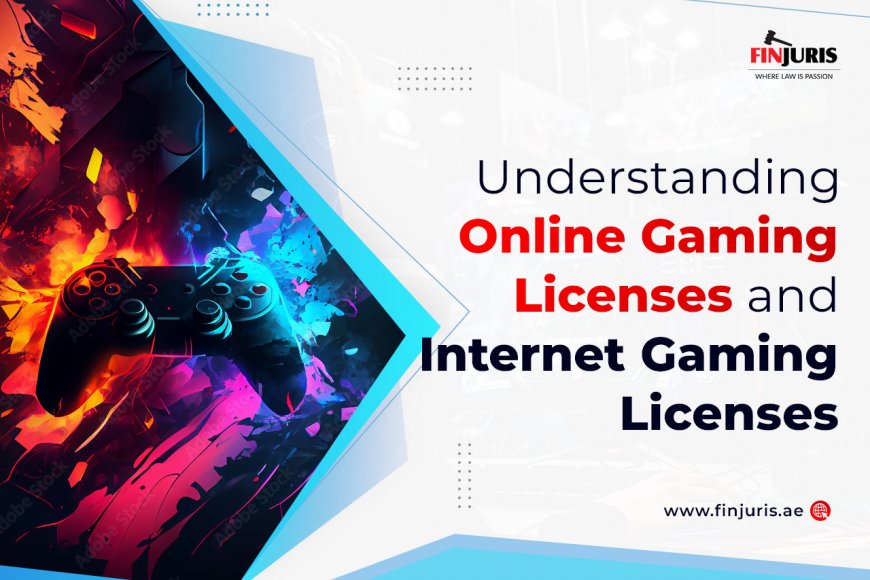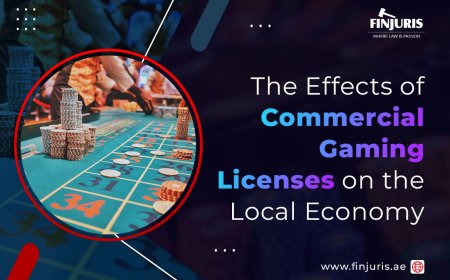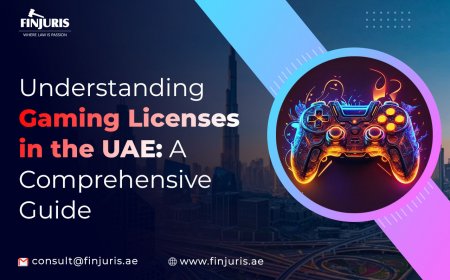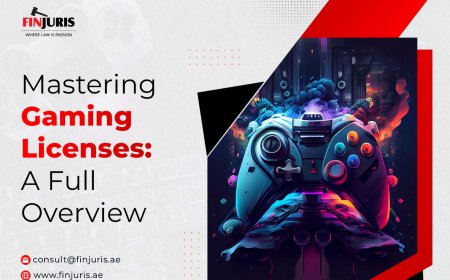Understanding Online Gaming Licenses and Internet Gaming Licenses
Learn about online gaming and internet gaming licenses, their importance, requirements, and regulations for operators and players.

Online gaming has grown at an exponential rate during the last few years worldwide. As the sector grows, it is increasingly necessary to ensure that operators and players are adequately safeguarded by rules. One of the primary ways governments and regulatory bodies accomplish this is through the issuing of Online Gaming Licenses and Internet Gaming Licenses. In this post, we will look at the relevance of these licenses, the process of obtaining them, and the advantages they provide to both operators and players.
What is an Online Gaming License?
An Online Gaming License is an official authorization issued by a regulatory agency that allows businesses to provide gaming services via the internet. This encompasses a variety of activities such as online casinos, sports betting, poker rooms, and other types of internet gambling. The goal of these licenses is to ensure that operators follow defined legal criteria, fostering openness, fairness, and security in the business.
What is an Internet Gaming License?
An Internet Gaming License is almost identical to an online gaming license, however the terms may be used interchangeably depending on the location or jurisdiction. The word "internet gaming" often refers to any gambling activity carried out via the internet, including both real-money and free-to-play games with wagering or skill-based features. In many situations, authorities that provide online gambling licenses also use the term "internet gaming license."
Importance of Getting a Gaming License
Legal Compliance: The most apparent reason for obtaining an online gaming license is to ensure compliance with the laws of the country in which the operator plans to provide services. Different nations and regions have different legislation governing online gambling, and a license assures that operators may lawfully conduct their services.
Trust and Credibility: Players may rely on a licensed gaming operator. A license demonstrates that the operator adheres to exacting criteria, including fair play, secure deposits and withdrawals, and ethical gaming practices.
Access to a Global Market: Many online gaming licenses, including those issued by renowned countries like as Malta, the United Kingdom, and Curacao, grant operators access to international markets, making it simpler for enterprises to recruit players from all over the world.
Tax and Financial Benefits: Obtaining a casino license may result in lower tax rates or other financial rewards. Gibraltar, the Isle of Man, and Malta are well-known for providing competitive tax rates for licensed operations.
Steps to Get an Online Gaming License
While the specifics may differ depending on the jurisdiction, the general processes to getting an online gaming or internet gaming license are as follows:
Jurisdiction Criteria: Gaming operators must comply with various legislation and criteria in different nations and areas. Some jurisdictions, including as Curacao and Malta, are thought to be more beneficial for online gaming due to reduced taxes and a simple licensing process. Others, like the United Kingdom or the United States, have more rigorous regulations.
Prepare documentation. To apply for a license, operators usually need to present thorough documentation regarding their operation, including:
-A Business Plan
-Proof of Financial Stability
-Details about the technology and security precautions in place.
-Information about the people behind the company, including background checks.
Submit the Application: Once the required documentation has been prepared, the operator submits the application to the appropriate gaming authority. This process can take a few weeks to many months, depending on the jurisdiction and the application's complexity.
Meet Regulatory Requirements: Throughout the application process, operators must demonstrate their ability to comply with the jurisdiction's legal and operational demands. These could include providing fair gaming, ensuring secure transactions, safeguarding client data, and enabling responsible gaming features.
Receive License and Begin Operations: If the application is approved, the operator will be issued a license, allowing them to legally provide online gaming services. To keep their license valid, the operator must continue to report and undergo regulatory checks.
Popular Jurisdictions for Online Gaming Licenses
Malta: Malta is a popular destination for operators seeking an online gambling license due to its well-regulated gaming industry and low tax rates. The Malta Gaming Authority (MGA) is in charge of awarding licenses and enforcing compliance.
United Kingdom: The UK Gambling Commission (UKGC) is noted for its stringent licensing criteria. The UK market is highly regulated, yet it provides a large, safe, and profitable audience for licensed operators.
Curacao: One of the most economical and straightforward licensing countries, Curacao provides a single license that covers a wide range of online gaming activities, including casino games, sports betting, and poker. However, it has a less strict regulatory framework than the UK or Malta.
Gibraltar: With its favorable tax environment and solid regulatory framework, Gibraltar is another popular jurisdiction for online gambling licenses, particularly among operators targeting European markets.
Alderney: Alderney is well-known for its solid regulatory structure and openness, and it provides an internationally recognized and accepted online gambling license.
Key Benefits of Having an Online Gaming License
Regulatory Oversight: Licensed operators are subject to ongoing monitoring and audits to ensure that they uphold high standards of gaming integrity and player protection.
Player Protection: An internet gaming license assures that players' money is safe, that games are fair, and that operators follow responsible gaming practices. This includes features like as self-exclusion policies and the opportunity for players to establish betting limits.
Business Legitimacy: Possessing a legal online gaming license enhances credibility with players and possible business partners. It enables operators to compete in foreign gambling marketplaces and legally advertise their services.
Tax Compliance: Operators with a valid license are typically expected to follow the tax laws of their licensing jurisdiction, which aids in the development of a transparent and accountable business model.
Obtaining an online gaming license or internet gaming license is required for operators who want to run a legal, transparent, and reliable online gambling business. It provides numerous benefits, including legal compliance, player protection, access to a worldwide market, and increased credibility. Operators may ensure a profitable and long-term online gaming business by selecting the appropriate jurisdiction and executing the required application process.
For players, the presence of a legal license is a clear indication that they are dealing with a trustworthy platform that follows stringent guidelines and provides a safe and fair gaming experience.
What's Your Reaction?




















